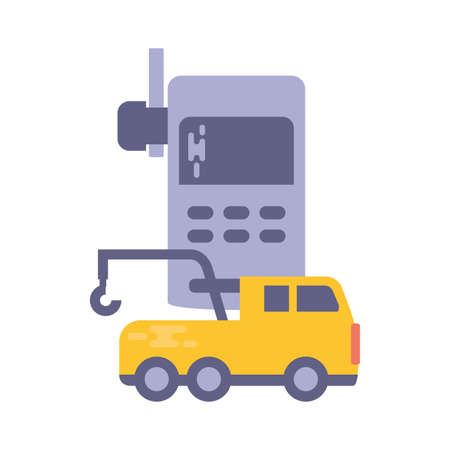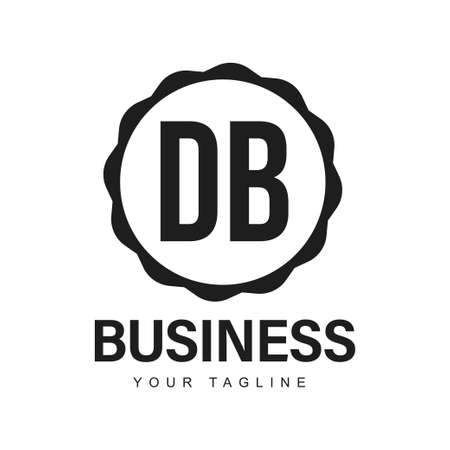1. Understanding Distinctive U.S. Customer Expectations
Why the U.S. Market Stands Out
The U.S. market is known for its diversity and high standards when it comes to customer experience. Businesses looking to succeed here must understand what makes American customers unique, especially when customizing CRM solutions. From direct communication styles to high expectations for service speed and personalization, these factors set the tone for how CRM systems should be tailored.
Key U.S. Customer Behaviors
| Behavior | Description | CRM Consideration |
|---|---|---|
| Direct Communication | Americans value clear and straightforward communication without excessive formality. | CRM messaging templates should use concise language and avoid jargon. |
| Quick Response Times | Customers expect fast replies, whether via email, chat, or phone. | Automated workflows and real-time notifications are essential features. |
| Personalization | People like offers, messages, and services that feel tailored to them. | Segment customer data for targeted campaigns within the CRM. |
| Self-Service Options | Many prefer solving issues on their own before contacting support. | Integrate knowledge bases and self-service portals into the CRM platform. |
| Loyalty Programs | Loyalty incentives are popular and can drive repeat business. | Track rewards and customer engagement through the CRM system. |
Cultural Nuances in Communication Styles
The American approach to business communication is friendly yet professional. Customers appreciate being addressed by name and receiving follow-ups after interactions. They also tend to give honest feedback, which can be leveraged in CRM systems for continuous improvement. Integrating feedback forms or survey tools within your CRM makes it easier to collect and analyze this valuable information.
Service Expectations That Shape CRM Customization
- Omni-channel Support: Americans expect seamless experiences across email, phone, social media, and chat. Your CRM should centralize these touchpoints for a unified view of each customer journey.
- Data Privacy: Respecting privacy regulations like CCPA is crucial. Customizing permission settings and opt-in preferences in your CRM helps build trust with U.S. customers.
- Proactive Service: Customers value brands that anticipate needs, such as reminders for renewals or personalized suggestions based on previous purchases. Automate these actions within your CRM workflow for a proactive approach.
The Bottom Line: Adaptability Matters
No single approach works for every market. Understanding what makes U.S. customers tick is the first step toward building a customized CRM solution that truly fits their needs and expectations.
2. Adapting CRM Features to American Business Practices
Integrating with Popular U.S. Platforms
One of the biggest advantages of customizing a CRM for the U.S. market is seamless integration with platforms that American businesses use daily. Whether it’s syncing with QuickBooks for accounting, connecting to Shopify or Amazon for e-commerce, or linking up with Slack and Zoom for communication, these integrations make workflows smoother and faster. When your CRM talks to the tools your team already loves, you save time and reduce errors.
Key Integrations Commonly Used in the U.S.
| Platform | Purpose | CRM Integration Benefit |
|---|---|---|
| QuickBooks | Accounting & Invoicing | Automate financial data sync; speed up billing |
| Shopify | E-commerce Management | Track sales and customer interactions in one place |
| Slack/Zoom | Team Communication | Instant updates and calls from within your CRM |
| Mailchimp | Email Marketing | Easily manage campaigns and measure ROI |
| DocuSign | E-signatures & Contracts | Simplify document workflows and approvals |
Meeting Compliance Needs in the U.S.
The U.S. business landscape is shaped by strict regulatory requirements like HIPAA for healthcare, CCPA for data privacy, and industry-specific standards. A tailored CRM ensures your business stays compliant by offering features such as secure data storage, access controls, audit trails, and automated compliance checks. With these safeguards built-in, companies can focus on growth without worrying about costly penalties.
Supporting American Sales Processes
The way sales teams operate in the U.S. can differ from other countries—think about territory management, lead scoring based on buying signals common in America, or tracking multi-stage deal pipelines. Custom CRMs let you set up dashboards, automate reminders for follow-ups, and create reports that reflect how your team actually sells. This means more closed deals and happier customers.
Custom CRM Features That Boost Efficiency for U.S. Businesses:
- Territory Management: Assign reps by state or region for better coverage.
- Automated Lead Scoring: Prioritize leads based on behaviors typical to American buyers.
- Multi-channel Communication: Engage customers through their preferred channels—phone, SMS, email, or social media.
- Real-time Reporting: Get instant insights into sales performance with customizable dashboards.
- User-friendly Mobile Access: Support field teams with easy-to-use mobile apps for on-the-go updates.
A CRM customized for the U.S. market isn’t just about language or branding—it’s about building smarter workflows that match how American businesses really operate every day. When your CRM fits your needs perfectly, productivity soars and your customers notice the difference.

3. Personalization and Data Privacy in the U.S.
When customizing CRM solutions for the U.S. market, businesses need to strike the right balance between delivering personalized experiences and respecting strict data privacy laws. American consumers expect companies to know their preferences, offer tailored recommendations, and make interactions feel personal. At the same time, they are highly aware of privacy concerns and demand transparency about how their data is used.
Understanding American Privacy Regulations
The California Consumer Privacy Act (CCPA) is one of the most influential privacy laws in the U.S., setting standards for how companies collect, store, and use consumer data. Other states are following suit with similar regulations. Key requirements include giving consumers the right to access their data, opt out of data sales, and request deletion of their information.
Personalization vs. Privacy: Finding the Balance
| Personalization Strategy | Privacy Compliance Step |
|---|---|
| Collecting customer preferences for targeted marketing | Obtain clear consent before gathering any personal data |
| Tracking user behavior for better recommendations | Inform users about tracking practices and offer opt-out options |
| Using purchase history to send special offers | Allow customers to review, edit, or delete their stored data easily |
| Segmenting audiences for personalized emails | Regularly update privacy policies and communicate changes clearly |
Best Practices for Building Trust with U.S. Customers
- Be transparent: Clearly explain what data you collect and why.
- Simplify consent: Make it easy for users to give or withdraw permission at any time.
- Empower customers: Provide self-service tools so users can manage their own information.
- Stay up-to-date: Regularly review your processes to comply with evolving state and federal regulations.
- Focus on security: Protect customer data with robust encryption and regular audits.
A well-customized CRM system should not only offer personalized experiences but also respect American values around privacy and control. By implementing these strategies, businesses can build stronger relationships with their U.S. audience while staying compliant with important privacy laws like CCPA.
4. Localizing CRM Communication Tools
When it comes to customizing CRM solutions for the U.S. market, it’s crucial to support local communication standards and preferences. U.S. businesses and consumers expect seamless interaction through multiple channels, so your CRM must easily integrate with popular American communication tools. Here’s how you can tailor your CRM system to meet these expectations:
Supporting Key U.S. Communication Channels
Effective customer engagement in the U.S. often involves using a mix of SMS, email marketing, and social media platforms. Your CRM should allow teams to manage all these channels from one place, making interactions more efficient and personalized.
| Channel | Why It Matters in the U.S. | Popular Platforms/Integrations |
|---|---|---|
| SMS | Quick, direct updates; used for appointment reminders, promotions, and alerts. | Twilio, EZ Texting |
| Email Marketing | Mainstream for newsletters, product updates, and drip campaigns. | Mailchimp, Constant Contact, SendGrid |
| Social Media | Engage where customers spend time; essential for brand presence and support. | Facebook, Instagram, X (formerly Twitter), LinkedIn |
Ensuring Easy Integration and Compliance
A CRM designed for the U.S. market should make it simple to plug in these communication tools without complex setups. It’s also important to respect local regulations like the CAN-SPAM Act for emails and TCPA rules for SMS messaging.
- Simplified Integrations: Choose a CRM that offers ready-to-use connectors or APIs for leading U.S.-based platforms.
- Compliance Tools: Built-in features to manage opt-ins, consent tracking, and unsubscribe requests help protect your business from legal risks.
Customizing Messaging for American Audiences
Your CRM should allow you to segment your audience and personalize content by region, interests, or demographics—critical for resonating with diverse U.S. customers. Automated workflows can ensure timely follow-ups based on local holidays or events.
Benefits of Localized CRM Communication Tools
- Improved Customer Experience: Reach customers on their preferred channels with relevant messaging.
- Higher Engagement Rates: Multi-channel strategies lead to better open rates and response times.
- Easier Team Collaboration: Centralized dashboards let your team track all interactions in one place.
The Takeaway
A truly localized CRM solution supports the unique communication landscape of the United States by integrating with popular platforms and ensuring compliance with local laws. This approach not only streamlines internal processes but also helps build stronger relationships with American customers.
5. Scalability and Support for U.S. Growth Mindsets
Why Scalability Matters in the U.S. Market
American businesses are known for their ambition and fast-paced growth. Whether its a tech startup in Silicon Valley or a retail chain expanding nationwide, companies expect their CRM solutions to grow with them. A scalable CRM isnt just about handling more contacts—it should support more users, handle larger datasets, and add new features as your business evolves.
Key Features of Scalable CRM Solutions
| Feature | Why It Matters |
|---|---|
| User Management | Easily add or remove team members as your company grows. |
| Data Storage | Handle increasing customer data without slowing down performance. |
| Custom Integrations | Connect with other business tools as you expand operations. |
| Flexible Pricing | Pay for what you need now, upgrade as you scale up. |
Diverse Teams Need Flexible Solutions
The U.S. workforce is incredibly diverse, often spread across multiple locations and time zones. Your CRM should support collaboration among sales, marketing, and customer service teams—whether theyre working from New York, Texas, or remotely. Look for solutions that offer role-based access, customizable dashboards, and multi-language support to keep everyone on the same page.
24/7 Support: Meeting American Expectations
U.S. customers and employees expect immediate help when something goes wrong. That’s why round-the-clock customer support is a must-have feature for CRMs targeting the American market. Whether it’s live chat, phone support, or a robust knowledge base, having help available at all times builds trust and keeps your business running smoothly.
| Support Type | Benefit for U.S. Businesses |
|---|---|
| 24/7 Live Chat | Instant assistance for urgent issues, no matter the hour. |
| Email Support | Track problems and resolutions over time. |
| Phone Support | Personalized help for complex questions. |
Summary: Building for American Growth
If youre customizing CRM solutions for the U.S., make sure scalability and strong support are top priorities. These features not only meet American expectations but also empower your business to chase big goals and adapt quickly in a competitive market.

